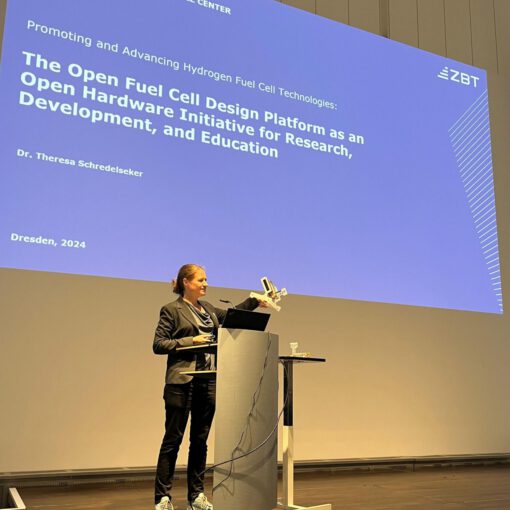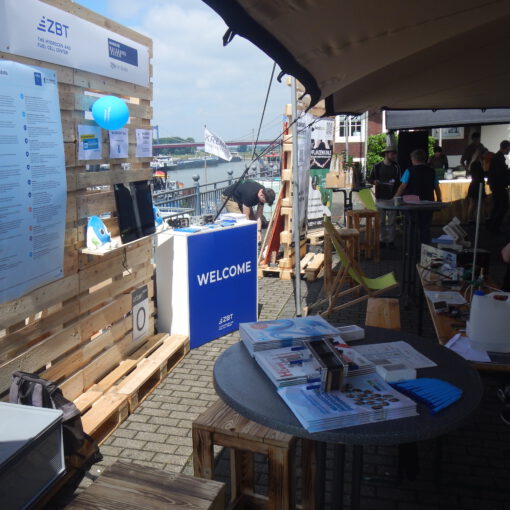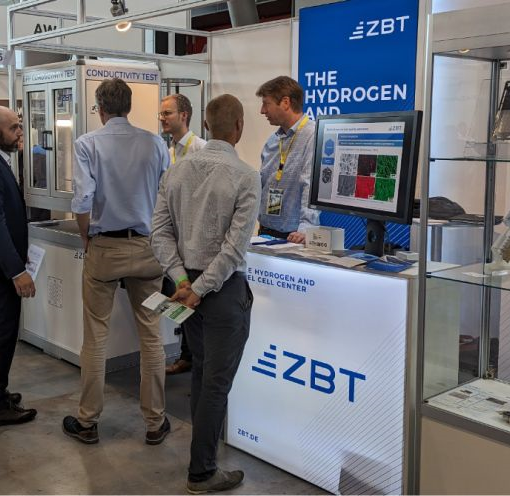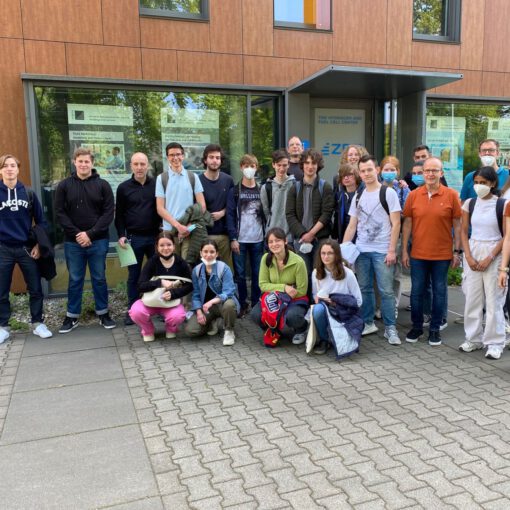Introduction
In late November 2023, the Open Fuel Cell (OFC) took a significant leap forward in its application for educational purposes. The occasion was the “MeetTech+Teach” teacher conference held in Mannheim, where the OFC was showcased to educators eager to explore its potential. This event not only provided a platform for demonstrating the practical use of the OFC but also served as an invaluable opportunity to gather direct feedback from teachers, fostering the development of practical and applicable educational concepts.
The Backpack Journey
One remarkable aspect of the OFC concept is its ability to eliminate the need for expensive and cumbersome equipment. The entire set-up, including the hydrogen supply, current load, and the fuel cell itself, neatly fits into a backpack. To demonstrate this portability, equipped with a backpack and a small additional box, I embarked on a journey from Duisburg to Mannheim by train. The experience felt akin to a scientific journeyman, carrying the promise of a hands-on and engaging educational adventure.
The Classroom Experience
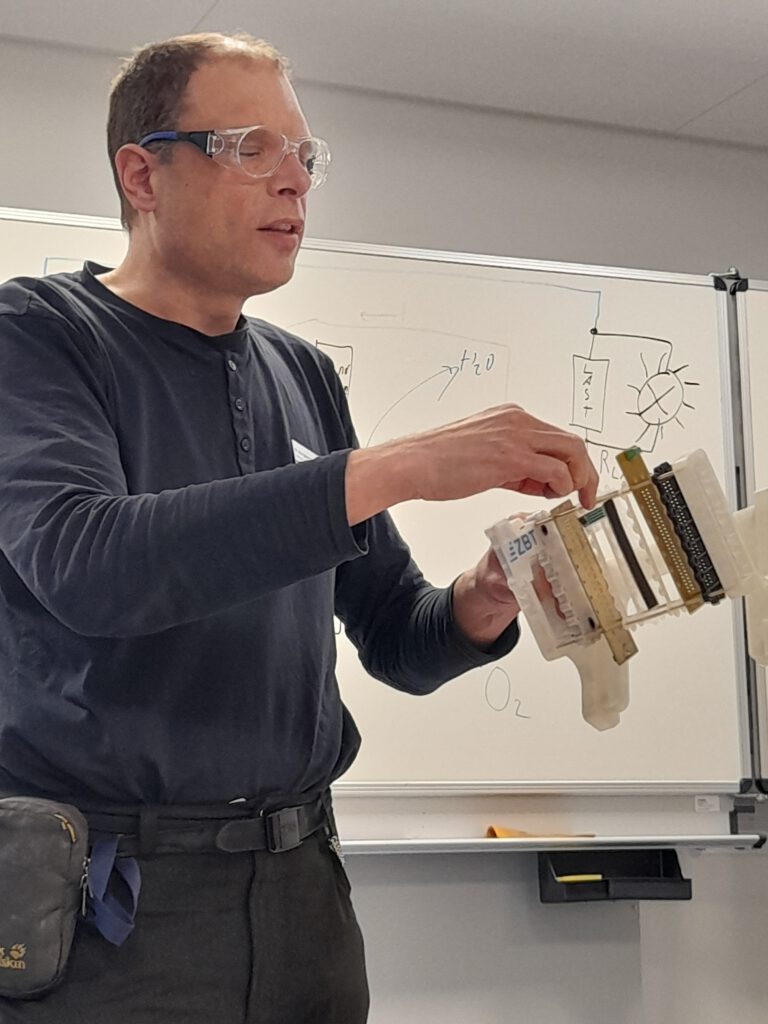
The conference featured two one-hour lectures, each beginning with a 15-minute discussion on the basic setup and operational principles of a Proton Exchange Membrane Fuel Cell (PEMFC). For this theoretical segment, the “materialized explosion model” of the OFC was employed. What set the presentation apart was the use of traditional tools – calc and a calc board – to create drawings, eschewing modern PowerPoint aesthetics. This approach not only proved more visually impressive but also allowed for a focused exploration of fuel cell technology.
Hands-On Experiments
The highlight of the lectures was undoubtedly the experimental phase, spanning approximately 45 minutes. During this time, participants engaged in three fundamental experiments outlined on the OFC’s official homepage. These experiments delved into the effects of mixed electrochemical potential on the cathode due to hydrogen crossover, as well as the self-humidification of the PEMFC. All experiments were conducted without the aid of computers, embracing a hands-on, pencil-and-paper approach.
Drawing Voltage-Current Diagrams
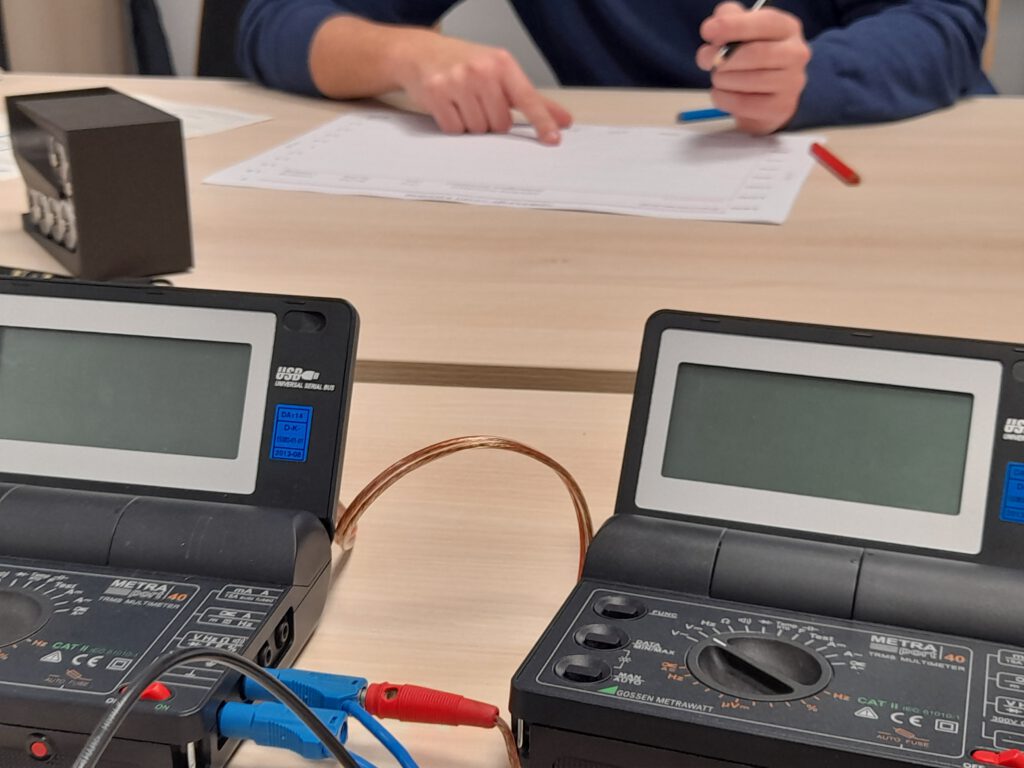
The experimental segment also included determining voltage-current diagrams of the cell. Intriguingly, this process involved operating the cell under both natural and forced air convection on the cathode side. The absence of computers during this experimental phase highlighted the commitment to simplicity and accessibility. Diagrams were meticulously crafted using pencils and paper, emphasizing the importance of a fundamental understanding of fuel cell technology.
Conclusion
The “MeetTech+Teach” conference not only marked a significant step forward in the educational application of the Open Fuel Cell but also showcased the power of simplicity and hands-on learning. By bringing fuel cell technology to educators in a portable and accessible manner, the OFC is shaping the future of science education. As we reflect on this scientific journey from Duisburg to Mannheim, it becomes evident that the Open Fuel Cell is not just a tool but a catalyst for fostering a deeper understanding of clean energy technology among educators and students alike.
